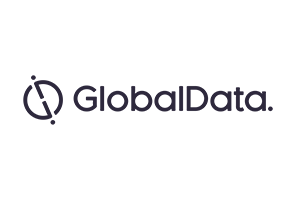At the most recent ASCO 2017 Meeting, investigators presented updated data from Opdivo + Yervoy’s Phase I CheckMate-012 trial in frontline NSCLC. Initially, it was expected that BMS would seek accelerated approval for the combination therapy in order to expedite its launch in the competitive NSCLC frontline setting, where it was set to battle Merck & Co.’s Keytruda + chemotherapy combination for first-to-market advantage. However, in January 2017, BMS surprisingly announced that it would not pursue an accelerated regulatory pathway in the US, based on a review of available data, without citing specifics.
Since this development, Keytruda has nabbed the distinction of being the first immune checkpoint inhibitor to be approved for frontline NSCLC therapy. In October 2016, Merck & Co. announced FDA approval for Keytruda in this setting for advanced NSCLC patients whose tumors express ≥50% PD-L1. In May 2017, Keytruda expanded its frontline label with an accelerated approval, in combination with Alimta and carboplatin, for the first-line treatment of metastatic nonsquamous NSCLC, irrespective of PD-L1 expression. Meanwhile, BMS’ Phase III pivotal trial for Opdivo + Yervoy, CheckMate-227, has a primary completion date of January 2018, which puts its potential launch up to two years behind that of Keytruda’s in the frontline setting.
The data from the CheckMate-012 trial released today highlight the possibility that the risk-benefit ratio of Opdivo + Yervoy in frontline NSCLC is unfavorable, and this may be the reason BMS did not seek accelerated approval for the combination. In the CheckMate-012 trial, two different dosing regimens of the combination treatment were tested- one cohort of patients received Yervoy once every 6 weeks (N+I Q6W), while the other cohort received Yervoy every 12 weeks (N+1 Q12W). The dose and schedule of administration of Opdivo was the same for the two cohorts. The primary endpoint of the trial was safety and tolerability.
Despite promising efficacy, the safety profile of the combination therapy was lackluster. In the Q6W and Q12W cohorts, 42% and 31% of patients experienced grade 3-4 treatment-related adverse events (AEs), respectively, and 18% of patients in each cohort had to discontinue treatment due to AEs. In comparison, in Keytruda’s pivotal KEYNOTE-021 study in treatment-naïve NSCLC in combination with chemotherapy, only 10% of patients discontinued treatment due to AEs.
In a highly competitive space such as frontline, advanced NSCLC, lack of tolerability could deal a significant blow to the uptake of the Opdivo + Yervoy combination regimen, by limiting its use in unfit patients.

US Tariffs are shifting - will you react or anticipate?
Don’t let policy changes catch you off guard. Stay proactive with real-time data and expert analysis.
By GlobalData



